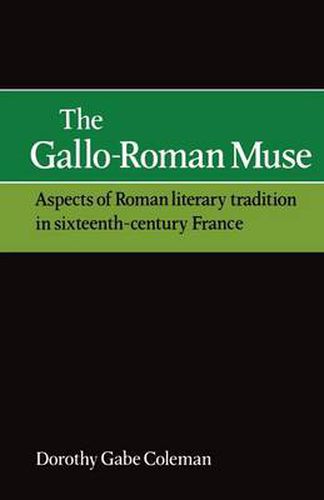Readings Newsletter
Become a Readings Member to make your shopping experience even easier.
Sign in or sign up for free!
You’re not far away from qualifying for FREE standard shipping within Australia
You’ve qualified for FREE standard shipping within Australia
The cart is loading…






It is well known in a general way that sixteenth-century French literature looked for its models towards Greece and Rome, but the topic is usually left there. This 1979 book begins with a reassessment of the original meaning and use of the work of Roman rhetoricians. It also identifies certain specific values or canons implicit in the actual texture of Latin poetry, and shows how these transformed French rhetorical theory and inaugurated the line of French poetry from Sceve to Valery. Mrs Coleman examines, both in general and in the work of Sceve, Ronsard, Du Bellay and Montaigne, in particular, the way in which Roman values were recreated in the new language and the new literary forms. Scholars interested in the survival or prolongation of the classical tradition will be interested, and so, of course, will specialists in French and Renaissance literary studies.
$9.00 standard shipping within Australia
FREE standard shipping within Australia for orders over $100.00
Express & International shipping calculated at checkout
It is well known in a general way that sixteenth-century French literature looked for its models towards Greece and Rome, but the topic is usually left there. This 1979 book begins with a reassessment of the original meaning and use of the work of Roman rhetoricians. It also identifies certain specific values or canons implicit in the actual texture of Latin poetry, and shows how these transformed French rhetorical theory and inaugurated the line of French poetry from Sceve to Valery. Mrs Coleman examines, both in general and in the work of Sceve, Ronsard, Du Bellay and Montaigne, in particular, the way in which Roman values were recreated in the new language and the new literary forms. Scholars interested in the survival or prolongation of the classical tradition will be interested, and so, of course, will specialists in French and Renaissance literary studies.